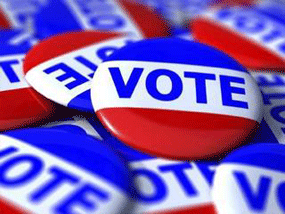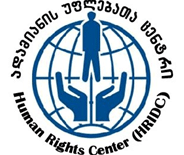
Shorena Latatia
In 2005, American researchers estimated that political advertisements on TV have short (two-week) impact on voters. But the result is so rapid and effective, that every tetri spent is justified.
Before the survey, the leader of the research, Donald Green also believed that the old, well-experienced principle of door-to-door agitation was the most effective method of gaining votes. During the repeated elections of one of the US governors in 2005, Green met voters twice – first when advertisements were aired and secondly, two weeks after advertisements finished. The result was incredible. Within the initial two weeks, the majority of voters changed their position in favor of the person advertised in those advertisements. However, two weeks later after advertisements were finished airing, the voters no longer favored the same candidate.
Experience showed that it is difficult to maintain voters’ sympathy for a long time only by political advertisements but it is doubtless that it plays decisive role in the success of an election campaign.
“Do you want to live better? Then vote for me!!!”; political subjects have long been trying to win elections with this simple psychological trick.
On the website of the National Library of the Parliament of Georgia the oldest political advertisement belongs to the Georgian Citizens’ Union (GCU).
Leaders are not personificated in the GCU’s advertisements and mostly voters spoke.
In one advertisement, voters of different professions tried to prove advantages of the GCU in the following way:
Tamaz Kaladze, school director: “I support Citizens’ Union because I want my country to be strong, unified; I want to have democracy and freedom of speech in our country…”
Natia Zandukeli, secretary of the court: “I support Citizens’ Union because they implemented real judiciary reform.”
Ziana Mzebrishvili, peasant: “I vote for the GCU because I hope they will help us. The new government will start everything from the beginning and we will have to endure new problems…”
You can also see raw materials of the GCU’s political advertisements on the website of the National Library of the Parliament of Georgia. It is difficult to watch voters without humor, who try to learn and then correctly repeat ready-made texts for the advertisement. “We are afraid of the new government because we do not know what they want,” “I hope for the Citizens’ Union because they are educated people, and I hope we will also get education;” “They want a European status of life and what is bad about that?!” “We have joined the Council of Europe, the entire world watches us; so, of course we should vote for them!” “Nowadays, police do not stop us so frequently, maybe they are afraid to breach human rights.” You can see full versions of advertisements here.
Famous people also participated in the advertisements alongside ordinary citizens.
Konstantine Madichi, oncologist – “I have one voice and I give it to the GCU who has done too much for the last four years and has much to do in future too. Let us give them time to finish what they have started.”
Nanuli Sarajishvili, actress: “Only judiciary reform, which they have implemented, guarantees that there will be justice in the country.”
Mamuka Khazaradze, president of the TBC group: “I think the country needs stability and European orientation; so I support them.”
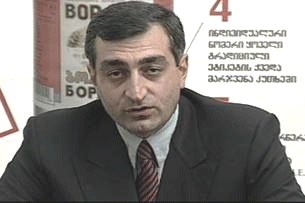
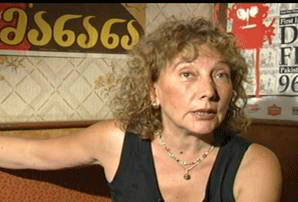
Temur Chkheidze, director: “Citizens’ Union is the political party that I respect. I can name more than ten members of the party whom I absolutely trust and believe are honest people and professionals.”
Nineli Chankvetadze, actress: “I think the number of honorable people in the Citizens’ Union is more [than in other parties]. So, I choose Citizens” Union.”
Lia Rtskhilava, musician: “I do like Misha Saakashvili, he is an educated, enthusiastic person. Young people like him, and he will greatly assist our parliament.”
As you see, some comments rely on the old Georgian proverb – accustomed plague is better than unaccustomed plague.
It is natural that the quality of advertisements improved eventually and its form and context has changed. Today no voter will admit that they are accustomed to a plague which should be elected.
Also, nowadays, children are less rarely used in political advertisement. In one of the GCU’s advertisements, a little boy is holding an earth-shaped ball in his hands and says it is his homeland; then we see a text on the screen: “Welfare to your families – Georgian Citizens’ Union”. A child is playing “home” in one more advertisement of the GCU and soldiers destroy his house. Then, GCU’s representative approaches the child, pats on the head and tells: “Let us build together.” They start to build house together. At the end we see text – “Let us build together: Georgian Citizens’ Union.”

We can evaluate one advertisement as a diversion from the general trend: We have a choice” , where a nice future of Georgia is presented via underlining historical facts and mistakes of other countries. For example: we read a text – ‘They did not have a choice after the scene of slaves’ labor’; then we see scenes describing fascist regime – “they made the wrong choice,” and finally we see GCU’s logo and text: “We have a choice.”
We should not omit one more creative advertisement of the Citizens’ Union, - song Gikharoden” – text- Rezo Amashukeli, music by Jemal Sepiashvili; it was one of the most famous hits at that time.
Georgian political advertisements have some history which will be further evaluated and studied by the specialists in advertisement and marketing history. Political advertisements aired before Parliamentary Election of 2012 will also belong to history and will become subject of research.
The Human Rights Center finished monitoring media coverage of parliamentary elections, which were covered from June 18 to November 18. Discussion of the specifics of this years’ advertisements will be more impartial in 4 years, based on the results for new monitoring of media coverage for the next parliamentary elections. It is clear that by that time culture of political advertisement will be more accomplished and some of 2012 advertisements will make us smile.

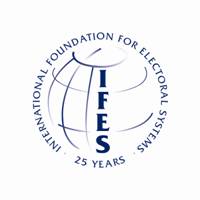
This report is made possible by the support of the American people through the United States Agency for International Development (USAID). The contents are the sole responsibility of Human Rights Center and do not necessarily reflect the views of the International Foundation for Electoral Systems, USAID or the United States Government

